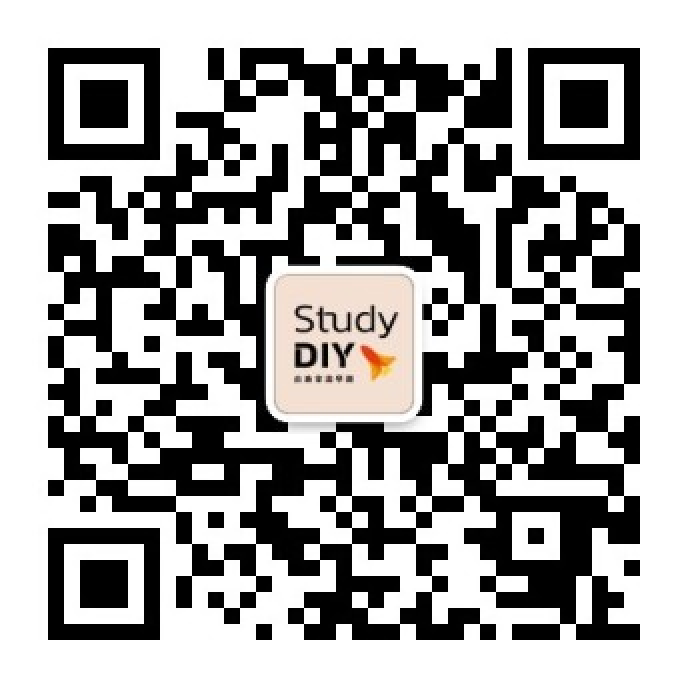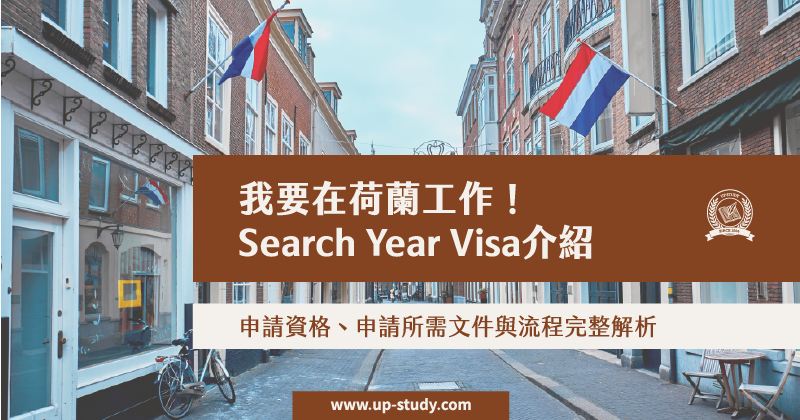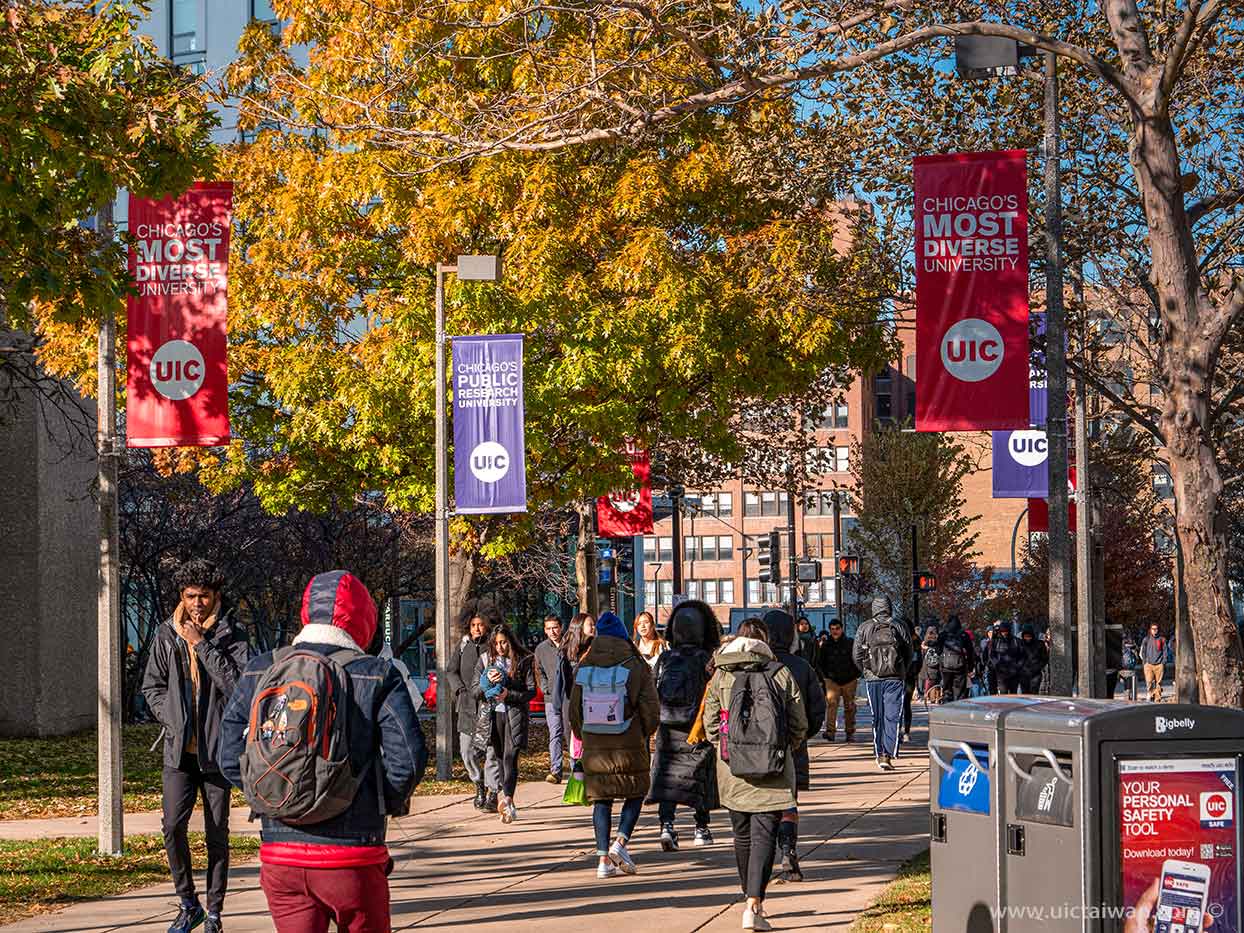What is the "Job Search" Visa?
The so-called job search visa, officially called the Orientation Year visa, is commonly referred to as the Search Year visa. This visa is designed by the Dutch government to attract foreign talent. Therefore, any student who has obtained a bachelor's degree or higher from a university or applied university in the Netherlands, or has graduated from an internationally recognized higher education institution abroad, is eligible to apply.
After applying, you can stay in the Netherlands for one year to find a job you like. There are no restrictions on the industry or job types. However, it's important to note that this visa can only be applied for once in a lifetime and cannot be extended. Therefore, after securing a job, you need to have your employer change your visa to a work visa or another legal visa.
Can I find a job in Taiwan and then go to the Netherlands?
You might be thinking about this as you're reading. Yes, you can find a job in Taiwan and have your employer assist with applying for a work visa to go to the Netherlands. However, finding a job internationally can be quite challenging.
Why is that? The job market and practices in the Netherlands are very different from those in Taiwan!
First of all, many companies prefer job seekers who do not need to apply for a visa to work. The application process is complex and expensive, and unless it’s a large international company with a dedicated department to handle visa issues, smaller and medium-sized companies may not invest the effort in applying for a visa for their employees.
Moreover, during the job application process, many HR departments will prefer to have an initial phone conversation to screen candidates. If you're in Taiwan, this step can become problematic, and HR may postpone handling your application.
Additionally, Dutch companies highly value "integration." It’s common to see job descriptions on LinkedIn that require candidates to be a team player and other similar traits. Many companies prefer candidates with prior experience working with Dutch companies, as this helps them integrate into the Dutch work culture.
For these reasons, many people aiming to work in the Netherlands choose to study in the Netherlands first, to better integrate into the environment, build connections, and gain the opportunity to apply for the Orientation Year visa.
What are the benefits of applying for the Orientation Year visa?
There are many benefits to this visa. First, those holding the Orientation Year visa are not limited in their job search. You can work part-time, full-time, etc. However, to convert it to a work visa after one year, you still need to meet the minimum salary requirements to be eligible to apply.
Generally, applicants for a work visa (Highly Skilled Migrant) must meet a minimum monthly salary requirement of 3,484 euros (for those under 30) and have employer sponsorship to apply. If you have obtained the Orientation Year visa, you do not need employer sponsorship to stay long-term in the Netherlands. Additionally, when converting to a work visa, you can benefit from a reduced salary requirement, where a monthly salary of just 2,497 euros is sufficient to qualify.
Additionally, this visa does not limit you to finding a job within the Netherlands, meaning job opportunities across Europe are available. Furthermore, after Brexit, many companies moved their headquarters from the UK to the Netherlands, creating many new job opportunities in the Netherlands.
Do I meet the requirements to apply?
To apply for the Orientation Year visa, in addition to having a bachelor’s or higher degree from a university or applied university in the Netherlands, the following criteria generally apply:
- Have completed at least one year of a master's program in the Netherlands, or
- Have obtained a master's degree from a university listed in the Erasmus Mundus program (https://www.eacea.ec.europa.eu/scholarships/emjmd-catalogue_en), or
- Have graduated from one of the top 200 universities globally. In Taiwan, only National Taiwan University (NTU) qualifies according to the 2021 World University Rankings (QS - 69, Times - 120) (https://www.topuniversities.com/university-rankings/world-university-rankings/2020, https://www.timeshighereducation.com/world-university-rankings/2020/world-ranking#!/page/0/length/25/locations/TW/sort_by/rank/sort_order/asc/cols/stats))
- Other special project research (details can be found on the official website) (More)
The above conditions must be met within the three years prior to the application. Qualifications that exceed three years are not eligible. If you are not applying as a Dutch international student, you will also need to provide proof of an IELTS score of 6.0 or higher, or equivalent results from TOEFL, TOEIC, or Cambridge English.
Are there other work visas available?
The Netherlands has a variety of visas, and the Orientation Year visa is not the only visa that allows Taiwanese people to work legally. For example, the working holiday visa, which started in 2020, and the employer-sponsored highly skilled migrant visa are also common.
But why choose the Orientation Year visa? Below is a simple comparison of these commonly applied visas:
Orientation year | Highly skilled migrant | Working Holiday | |
Legal residence time | 1 year (can be converted to work visa) | Depends on work contract | 1 year (can be converted to work visa) |
Salary requirement | No limit (salary of 2,497 EUR required for work visa conversion) | 3,484 EUR (under 30 years old) | No limit (salary of 3,484 EUR required for work visa conversion) |
Work contract | Part-time, full-time | Full-time | No contract exceeding one year |
Application fee (2021) | 192 EUR | 320 EUR | No application fee |
From the simple comparison above, we can see that the salary threshold for switching from an Orientation year visa to a work visa is more flexible, and the types of jobs available are more diverse. Holding this visa is truly a great benefit!
How to apply for the Orientation year visa?
There are two ways to apply for this visa: online and paper-based.
The application fee was 192 euros in 2021.
A. Online Application:
If you have recently completed higher education in the Netherlands and your student visa has not yet expired, you can apply online. Just visit the official website of the Dutch Immigration and Naturalisation Service (IND) (https://ind.nl/en/work/working_in_the_Netherlands/Pages/Looking-for-a-job-after-study-promotion-or-research.aspx) to apply.
Required documents:
1. BSN: The "Citizen Service Number" (BSN) is assigned to everyone who has resided in the Netherlands or is a citizen, similar to Taiwan's ID number.
2. DigiD: A government system. If you have a DigiD account, you can use it to apply for or access all government-related services.
3. iDEAL: A unique online payment system in the Netherlands, providing a transaction platform for all Dutch banks/financial institutions and the general public. Most online transactions require iDEAL.
B. Paper-based Application:
If you have already left the Netherlands, your student visa has expired, or if you hold a non-Dutch diploma and do not have a residence permit in the Netherlands, you need to visit the Dutch Office in Taipei to apply for the MVV and Orientation year visa, and enter the Netherlands within three months after obtaining the MVV.
Required documents:
1. MVV issue form: MVV is short for temporary residence permit, a document required for Taiwanese citizens applying for long-term residence (over 90 days). It mainly verifies the purpose of the applicant's stay.
2. Information for an application for an orientation year as a highly educated migrant seeking employment: The main form for applying for the visa.
3. Antecedents Certificate: A police clearance certificate, requires disclosure of any criminal records.
4. Declaration of intent to undergo a TB test: A declaration of tuberculosis screening, Taiwan is on the list of countries exempt from TB testing.
5. Educational documents: You need to translate your diploma and other documents into English and have them certified.
6. Screenshot proving that the school ranks in the top 200.
Working abroad is not easy. You need to integrate into the local society and culture and build a network. Therefore, many people choose to start by studying in the Netherlands to lay a foundation. After reading this article, do you have a better understanding of how to help yourself achieve your dreams? Let UP-STUDY help you fulfill your dream of studying and working in the Netherlands!




 Study Abroad in Different Countries
Study Abroad in Different Countries Popular Majors
Popular Majors Application Process
Application Process Study abroad exam
Study abroad exam Visa Application
Visa Application Study Abroad Life
Study Abroad Life








 Study in the USA
Study in the USA Study in Australia
Study in Australia Study in the UK
Study in the UK Study in the Netherlands/Ireland
Study in the Netherlands/Ireland Study in Canada
Study in Canada Conditional Admission
Conditional Admission



